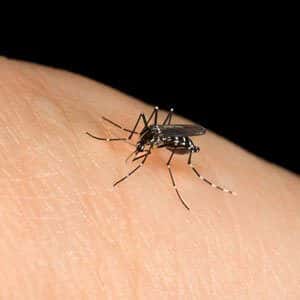
The concern about Zika virus is an excellent reminder that mosquito bites can transmit disease. Even where Zika has not arrived, there are infections such as West Nile virus that is currently very widespread in the United States. Although most people bitten by mosquitoes carrying West Nile virus have no symptoms at all, an unlucky few develop an extremely serious infection that may start with headache, high fever, disorientation, tremors and proceed to coma, seizures or paralysis. It only makes sense to protect yourself from mosquito bites, no matter where you may live, but what is the best mosquito repellent?
Finding the Best Mosquito Repellent:
Q. Please settle a family dispute. My husband insists on using high-potency DEET mosquito repellent when we go hiking. I prefer a natural approach like lemon eucalyptus that he says is worthless. Who’s right?
A. You’re both right. Consumer Reports rates 15 to 30 percent DEET as highly effective (Ben’s, Off Deepwoods VIII and Repel Scented Family). These products kept mosquitoes from biting for about eight hours. Of the natural repellents, Repel Lemon Eucalyptus (30 percent) was roughly comparable to DEET, keeping mosquitoes away for up to seven hours.
Another effective option is picaridin 20 percent, which is a synthetic version of a chemical in the black pepper plant. Brands include Sawyer Picaridin and Natrapel 8 Hour. As the name implies, these products also provide protection for up to eight hours.
Warding Off Ticks:
In addition, both picaridin and DEET offer protection from ticks. Since tick bites may transmit Lyme disease, Rocky Mountain spotted fever, bartonellosis and a range of other infections, warding off tick bites is just as important as preventing mosquito bites.
To learn more about ticks and the infections they carry, you may be interested in our hour-long interview with Drs. Neil Spector, Robert Mozayeni and Thomas Platts-Mills.

